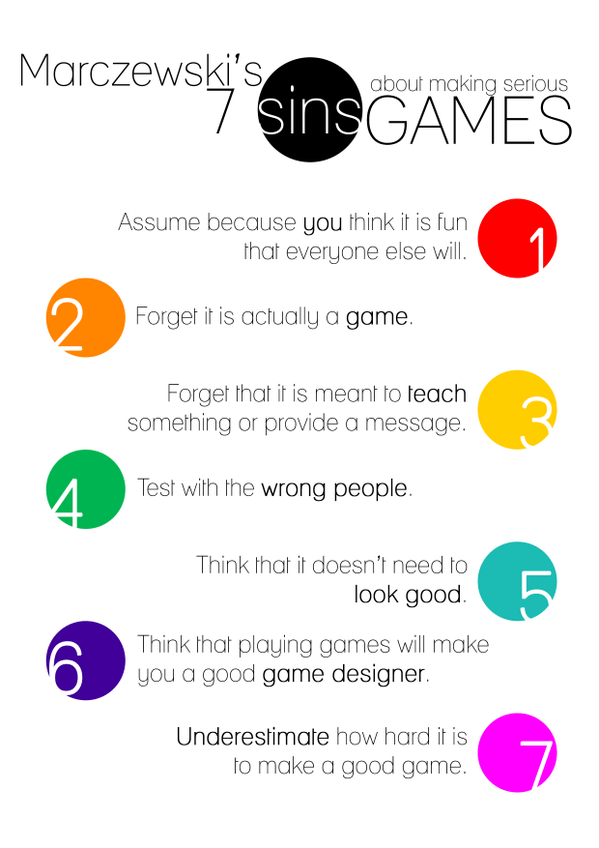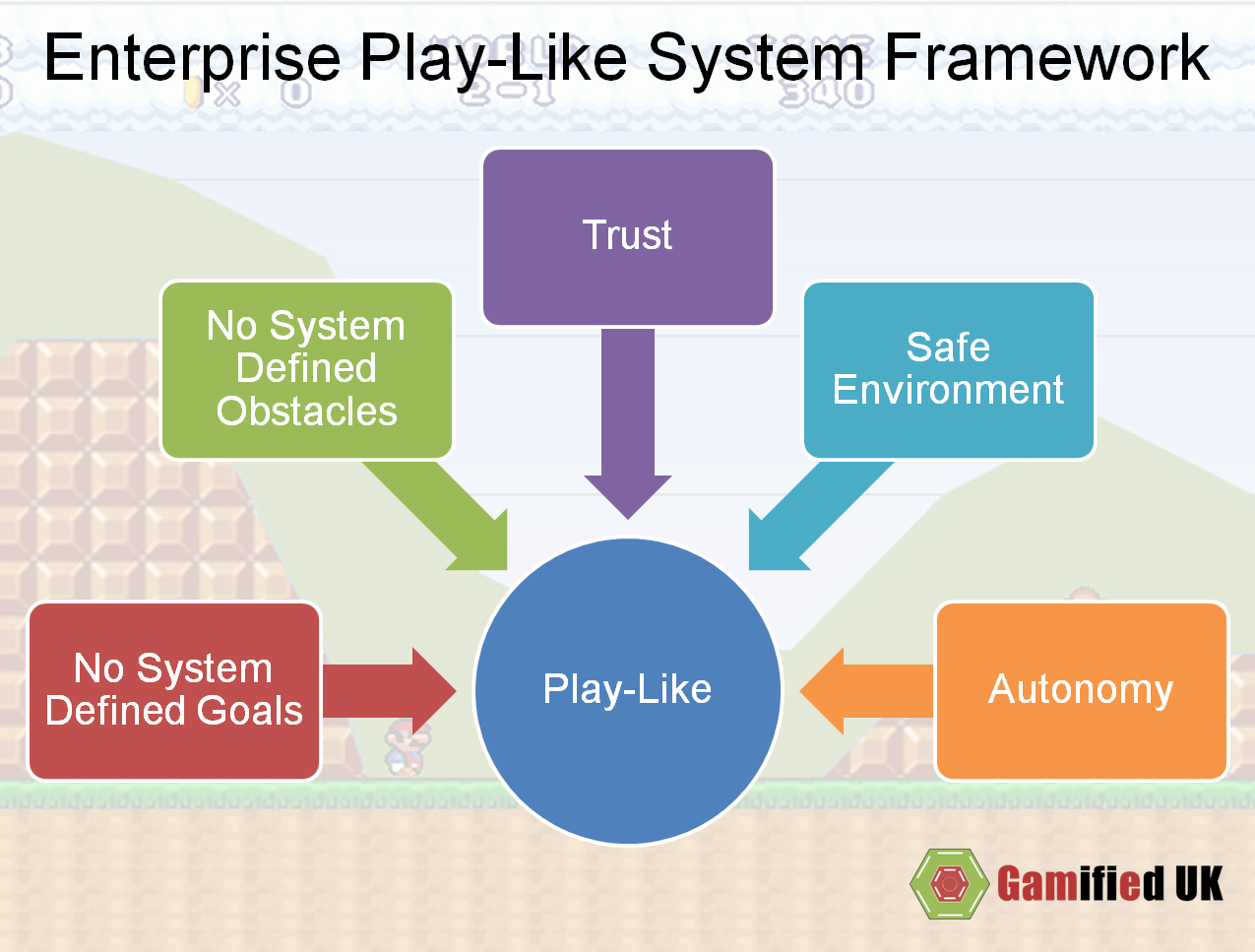As you may know, the concept of play is very important to me. I feel that it is one of the true keys to engagement in adults, but as I was speaking about recently, adults often have no idea how to play. They have the intrinsic desire to play battered out of them by the “real” world. Unlike children, they don’t see the potential for play in the world around them. Some blame work for this – they often say that the opposite of play is work. However, I prefer to go with Dr. Stuart Brown’s (founder of the National Institute of Play) analysis in this case, that the opposite of play is actually depression.
Game
7 Deadly sins of making serious / educational games
I wanted to add a short post just highlighting 7 things that I repeatedly see people doing wrong when they are making or considering making serious / educational games. This is by no means an exhaustive list though – I just like the idea of 7 deadly sins 😀
- Assume because you think it is fun that everyone else will.
- Forget that it is actually a game.
- Forget that it is meant to teach something or provide a message.
- Test with the wrong people.
- Think that it doesn’t need to look good.
- Think that playing games will make you a good game designer.
- Underestimate how hard it is to make a good game.
In a little more detail.
Assume because you think it is fun that everyone else will.Emergence: Learning to Love the Unintentional
Emergence in Games
Emergence is a well-known concept in game design. Emergent gameplay comes when players interact with the mechanics of the game creating situations that have not been deliberately designed.
This could be part of the game design or it could be unintentional. For instance, the game may offer several tools to solve a puzzle, but allow the player to use them in any way they see fit. If the puzzle requires you to reach an item that is high up, there could be an infinite number of ways to get it. Use a grapple hook, build a tower, make a jetpack and so on.
A framework for creating play-like systems
Separating Games from Play and using it
All of this research into play and talking about play has been for a reason. I wanted to try and open up the idea of making more play-like experiences rather than more game-like experiences. I was trying to introduce some of the basics that separate games and play. For this there are three important differences between play and games that we need to keep in mind.
- Games have prelusory goals – ie, goals that you must achieve that have been set by the system.
- Games have rules that define how you have to achieve the prelusory goals (Lusory Means).
- They also have rules that create challenges to achieve the goals. Rather than going from A to B in a straight line, you have to overcome obstacles and solve puzzles going A to Z to E to B and back again! (Constitutive Rules)
In play, the goals are often less defined or not consciously apparent. Whilst there may be rules that dictate how play progresses (social rules, physical rules and so on), there are not that are there to deliberately challenge you or make things harder.
Introducing Lusory Attitude
As I have been researching play, there is a term or really a word and concept that has been hard to ignore. Ludic. It comes up a lot in papers and articles about play. It comes from the Latin for play and is defined as;
Showing spontaneous and undirected playfulness.
Let me set the scene. You are in a system that follows the path outlined below.
- You start with a tutorial. It sets the context for what you are doing as well as giving you the basic skills you need to start.
- You are given a set of tasks to complete and goals to achieve.
- Next you start grinding, completing the simpler tasks as you develop your skills and learn more about the system.
- As your level of skill increases, new challenges become available and new goals are set. These may require you to learn new skills and increase your abilities.
- Along the way there are surprises and unexpected events. You will meet new people, some will be friends and you will need to work together with them to a bribe certain goals and some won’t!
- All the while you will be collecting experience and currency as you complete new challenges.
I’ll come back to that. Ludic turns up in various forms when academics speak about play. Here are a few examples.
- Ludos: this is the original Latin for play
- Ludeme: this is a concept that Raph Koster speaks about. In their simplest form a ludeme is a unit of play.
- Prelusory goals: goals set by the game.
- Lusory means: rules set by the game.
- Lusory attitude: a playful mindset. An understanding that you are entering play.
The last three are from Bernard Suits definition of a game from his seminal book The Grasshopper: Games, Life and Utopia.





